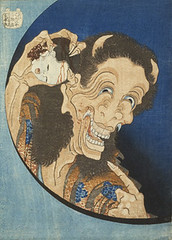“Le globe terrestre est couvert de volcans qui lui servent d’anus.”
“The terrestrial globe is covered with volcanoes, which serve as its anus.”
From: Georges Bataille, ‘The Solar Anus‘. via Surreal Documents in a post[1] on Skullflower.

“Le globe terrestre est couvert de volcans qui lui servent d’anus.”
“The terrestrial globe is covered with volcanoes, which serve as its anus.”
From: Georges Bataille, ‘The Solar Anus‘. via Surreal Documents in a post[1] on Skullflower.
While reading Jenny Diski‘s Nothing Natural (1986) I daydreamt of publishing my own version of this 1980s version of the classic novel Gordon by Edith Templeton.
The Jahsonic edition had a cover photograph by American photographer Roy Stuart. It depicted either the “La Bonne” (the maid) scene — one of the most erotic scenes in contemporary erotica — or “The Wall” scenario, which is very similar (although with a reversal of gender) to a dream scene in Breillat‘s masterpiece Romance X.
My edition is rewritten to provide for more intelligent discourse and snappier metaphors, and the perspective is changed from Rachel to Joshua. Joshua being the voice of a post-war Sade.
Work by Belgian artist Auguste Donnay (1862 – 1921)
Posting this painting was inspired by a recently opened exhibition in Brussels:Oriental Fascination – Japonism in Belgium, which from today until 28 September 2008 will show for the first time in Belgium, Japonism in Belgium, from the collection of Feliks Jasienski in Krakow. The exhibition is at the Brussels Town Hall, in the very center of Brussels. Some of Donnay’s work is on display.
The above painting is of course not representative of the exhibition, but I wanted to show it to you anyway, since discovering interesting work from my native Belgium is always a pleasure.
Below a work from Hokusai, the artist most typical and best-known for the European fin de siècle craze known as Japonism.

Work by Hokusai
The titular phrase of this post is from a poem by François Villon, “Ballade des Dames du Temps Jadis”, with its famous line: Mais où sont les neiges d’antan ?, translated in English as “Where are the snows of yesteryear ?”
Bird’s Nest and Ferns (1863) by Fidelia Bridges
“When we examine a nest, we place ourselves at the origin of confidence in the world.” -—Gaston Bachelard, The Poetics of Space
La Fleur du marécage (1885) by Odilon Redon
In 1885, Odilon Redon depicts a Pierrot entitled La Fleur du marécage and commented with “La fleur du marécage, une tête. humaine et triste.” The engraving is is reminiscent of the fantastic plants of Edward Lear. Marécage is French for swamp, so the title translates as The flower of the swamp, a head. Human and sad.
Yes, this world is indeed flat, while the other nonsense.
I am resigned, without hope, in my fate,
And to kill time until death,
I smoke by the noses of the gods thin cigarettes.
Go, live, strive, poor future skeletons,
I, the blue meander which toward the blue sky twists,
plunge into an infinite ecstasy and end up sleeping
As a perfume dying of a thousand dishes.
And I enter paradise, filled with flowery yet clear dreams
Where seen mingling in waltzes fantastic
Elephants in choirs of mosquitoes.
And then, when I wake dreaming of my verse,
I contemplate the heart full of a sweet joy,
My dear thumb roasted as a goose’s thigh.
See Le sanglot de la terre, a poem that evinces the influence of Arthur Schopenhauer‘s pessimistic philosophy and Edward von Hartmann‘s concept of the unconscious mind.
Love letter from Beethoven to an unknown woman (his Immortal Beloved), published in the fictional book Love Letters of Great Men. And I thought my handwriting was bad.
dir – mein Leben – mein alles – leb wohl – o liebe mich fort –
verken nie das treuste Herz deines Geliebten
L.ewig dein
ewig mein
ewig uns
And this is the English translation
you – my life – my all – farewell. Oh continue to love me –
never misjudge the most faithful heart of your beloved
L.ever thine
ever mine
ever ours
By Freudian free association: Du and Dir are German words for you. “Du” (Bist Alles)[1] is also the title of a European popular song by Peter Maffay later covered by David Hasselhoff [2]. In 1969, when this song came out, you could also have been discovering Kool & The Gang and The Stooges.
This post rhymes with air
She threw back her hair
Like I wasn’t there
And she sipped on a julep.
Her shoulders were bare
And I tried not to stare

[Youtube=http://www.youtube.com/watch?v=mYHEBa6Xx48&]
“Summer (The First Time)” (1973) by Bobby Goldsboro
A Hemisphere in Your Hair (French: Un hémisphère dans une chevelure) is a poem by Baudelaire collected in Paris Spleen.
In the film Withnail & I Richard Griffith’s character recites the line “Laisse-moi respirer longtemps, longtemps, l’odeur de tes cheveux” (Eng: Long let me inhale, the odour of your hair).
or, sweet words for sweet ladies
Like willow I will be the willow on your bedside
The quote comes from an old Asian ghost tale. The photo was taken by a Wikipedian. As an afterthought: it’s very difficult to find out who at Wikipedia is responsible for which photo, it’s equally difficult to understand the intricacies of Creative Commons licences. Enjoy the photo and quote and have a nice weekend. See you on Monday.